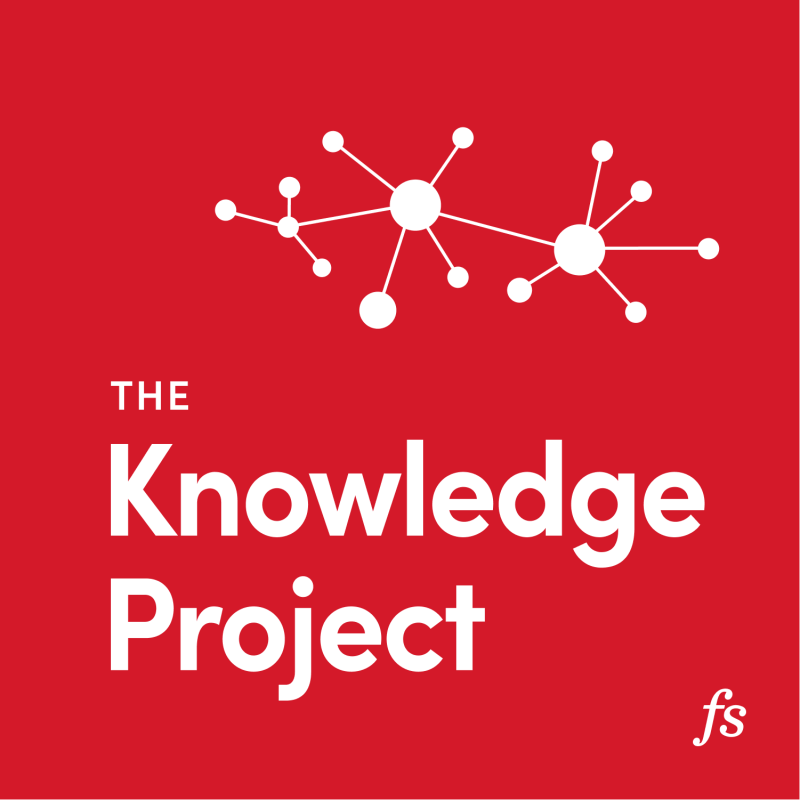Psychologist and Nobel laureate Daniel Kahneman reveals the actions we can take to overcome the biases that cripple our decision-making, damper our thinking, and limit our effectiveness. Listen and Learn from the master.
Listen and Learn: YouTube | Apple Podcasts | Spotify | Transcript
I’m thrilled to welcome one of our most requested guests to The Knowledge Project, psychologist and recipient of the 2002 Nobel Prize in Economic Sciences, Daniel Kahneman.
Often credited as a founding father of behavioral economics (along with his dear friend and research partner, Amos Tversky), Daniel has been conducting eye-opening experiments and research demonstrating the unreliability of human rationality for over 40 years.
His work was summarized in the perennial best-selling book Thinking Fast and Slow, which has been a major catalyst in introducing the idea of cognitive biases to the mainstream zeitgeist.
Daniel has so much to teach that capturing it in a 60-minute interview would be impossible, but I did my best. We talked about the factors that contribute to happiness and life satisfaction, procedures to improve our decision-making, what, if anything, can be done to overcome our cognitive biases, why changing behavior is so difficult, and much more.
Here are a few highlights from our conversation:
I think changing behavior is extremely difficult. There are a few tips and a few guidelines about how to do that, but anybody who’s very optimistic about changing behavior is just deluded. It’s hard to change other people’s behavior. It’s very hard to change your own. Not simple.
I’d like people to know that motivation is complex, and that people do good things for a mixture of good and bad reasons; and they do bad things for a mixture of good and bad reasons. I think that there is a point to educating people in psychology. It’s to make them less judgmental. Just have more empathy and more patience. Being judgmental doesn’t get you anywhere.
What gets in the way of clear thinking is that we have intuitive views of almost everything. So as soon as you present a problem to me, I have some ready made answer. What gets in the way of clear thinking are those ready made answers, and we can’t help but have them.
We have beliefs because mostly we believe in some people, and we trust them. We adopt their beliefs. We don’t reach our beliefs by clear thinking, unless you’re a scientist or doing something like that. There’s a fair amount of emotion when you’re a scientist as well that gets in the way of clear thinking. Commitments to your previous views, being insulted that somebody thinks he’s smarter than you are. I mean lots of things get in the way, even when you’re a scientist. So I’d say there is less clear thinking than people like to think.
Very quickly you form an impression, and then you spend most of your time confirming it instead of collecting evidence.
Negotiations is not about trying to convince the other guy. It’s about trying to understand them. So again, it’s slowing yourself down. It’s not doing what comes naturally because trying to convince them is applying pressure. Arguments, promises, and threats are always applying pressure. What you really want is to understand what you can do to make it easy for them to move your way. Very non-intuitive. That’s a surprising thing when you teach negotiation. It’s not obvious. We are taught to apply pressure and socialize that way.
Independence is the key because otherwise when you don’t take those precautions, it’s like having a bunch of witnesses to some crime and allowing those witnesses to talk to each other. They’re going to be less valuable if you’re interested in the truth than keeping them rigidly separate, and collecting what they have to say.

